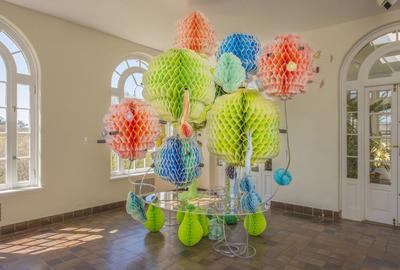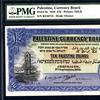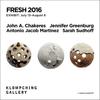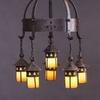Emperor's Inkstand Could Bring $1.5M at Gianguan Auctions June 13 Sale
- NEW YORK, New York
- /
- June 01, 2015
Gianguan Auctions, New York’s only Chinese-American owned auction house is saving the best for last in its June 13th auction. After the parade of classical Chinese scroll paintings, antique cloisonné and Buddhist art, bidders will vie for Lot 282, the Northern Song Emperor Huizong’s Heavenly Daoshan Duan ink stone. It is expected to fetch as much as $1.5M.
Of a deep purple-brown the Emperor’s Heavenly Dooshan Duan stone is rectangular and carved with a pavilion named Heavenly Daoshan. The vertical sides are carved with inscriptions while the underside relief is a tortoise carrying a tablet. On the recessed base are the words “By Imperial Decree: Xuan He." It will reach the podium between 2:00-3:00 p.m, EDT.
A collection of historic and contemporary ink scroll paintings lead the auction. Included are works by blue-chip Chinese masters like Zhang Daqian’s (1899-1983) double panel “Lotus.” A nearly monochromatic work, it is among the most accomplished of the artist’s ink splash oeuvre, a technique that rivaled western experiments in Expressionism. With three artist seals on each panel, “Lotus” is expected to command $100,000 to $150,000.
Lot 125, Qi Baishi’s (1864-1957) mid-century “Longevity Peach,” is a masterpiece of bold brush strokes and subtle shading. As succulent plums hang ripe on branches of greenish hue, tall tree trunks are articulated in simple gradations of ink. Inscribed and signed Qi Huang, the work bears one artist seal and is expected to command $80,000-$100,000.
In contrast, Lot 86, “Plum Blossoms”, a 14th century Yuan Dynasty work by Wang Mian fills the paper with multitudes of blossoms. It is a rare example a court artist breaking from tradition to create an imaginative work that foreshows the boldness and vigor of later movements. Inscribed and signed and having one artist seal and one colophon by Ji Tong, the painting has eight Emperors’ seals and eight Collectors seals. Its estimate is available on request.
A highlight of the decorative arts item is Lot 169, a five-piece Qing Dynasty cloisonné enamel altar set. Rarely has such exquisite garniture resplendent in color and technical achievement passed down through the ages intact. The set includes an incense burner on tripod base with two-flaring handles, a pair of pricket candlesticks with dish centers set on high-dome bases and a pair of slender gu shaped vases. Each is decorated with an intricate pattern of scrolling lotus blossoms, interspersed with windows depicting clusters of foliage and plantain leaves in pink, lime-green, blue, red, yellow and white on a turquoise ground. Estimate is $40,000-$60,000. A similar set can be seen in the Taipei Palace Museum.
An extensive collection of carved jades includes historic offerings such as Lot 194, a Han white jade ding with cover. Crafted sometime between 206 and 220 A.D., the vessel stands on a tripod based and is carved with the characters Xie You Fu encircled by a band of phoenix masks. Two upright U-shaped handles flank the sides. According to experts, the vessel and cover were carved from one substantial jade boulder. The estimate is $60,000-$80,000.
Classic Buddhist deities in gilt bronze include Lot 170, a rare enameled Shakyamuni Buddha, seated and robed in rich tones of pink and flower heads. Of the Ming Dynasty, the statue carries the Yongle six character mark. Its estimate is $20,000-$50,000. Lot 174 is a Ming interpretation in gilt bronze of Manijusri and Samantabhadra. Both Bodhisattvas are cast seated with legs pendant. Samantabhadra sits on a recumbent elephant and holds a lotus stalk. Manijusri sits on the back a Buddhist lion and holds ruyi, scepter and pearl. The estimate for the pair is $20,000-$40,000.
For a comprehensive look at all items in the sale, including antique cloisonné, Chinese ceramics and carved jades, please visit www.gianguan auctions. The auction begins at 10:00 a.m. on Saturday, June 13.

















![Peter Paul Rubens (Flemish, 1577–1640), After Titian (Tiziano Vecelli) (Italian [Venetian], c. 1488–1576), Rape of Europa, 1628–29. Oil on canvas, 71 7/8 x 79 3/8 in. Peter Paul Rubens (Flemish, 1577–1640), After Titian (Tiziano Vecelli) (Italian [Venetian], c. 1488–1576), Rape of Europa, 1628–29. Oil on canvas, 71 7/8 x 79 3/8 in.](/images/c/e2/2e/Jan20_Rape_of_Europa100x100_c.jpg)
